Tech transformation in real estate offers exciting opportunities for startups: Nirupa Shankar, Brigade Real Estate Accelerator Program
In this wide-ranging interview, we cover emerging tech trends in real estate, profiles of accelerated startups, regulatory changes in India, and tips for entrepreneurs in this sector.

[This article is part of the YourStory series Startup Hatch, about incubators, accelerators, makerspaces, and co-working spaces in the startup ecosystem. See earlier profiles of initiatives at IIT Bombay, IIM Bangalore, BITS Pilani, NCL, Tata Elxsi, Axilor, NID, IIIT-Bangalore, IIIT-Hyderabad, Vellore Institute of Technology, PSG Coimbatore, Workbench Projects, Makers Asylum, Appy Hours, Turning Ideas, NetApp Excellerator, Pitney Bowes Accelerator, TechStars, Indigram Labs, WeWork, Z Nation Lab, Sandbox Startups, Ashoka Innovators, and Startup Leadership Programme.]
Nirupa Shankar is the founder of Brigade REAP (Real Estate Accelerator Program). She is also an Executive Director at Brigade Group, and oversees its hospitality, office, and retail portfolio. This includes convention centres, serviced apartments, lifestyle membership clubs, banquets, and event management.
Nirupa asset manages the group's hospitality ventures, such as the Sheraton Grand Bangalore Hotel at Brigade Gateway and Grand Mercure Bangalore. She conceptualised and successfully launched the unique lounge bar atop the World Trade Centre-Bangalore, called HIGH Ultra Lounge, the highest point for food and beverage in South India.
Nirupa was earlier a senior business analyst with Ernst & Young LLP in the US. She has a bachelor’s degree in Economics from The University of Virginia, and a master’s in Management in Hospitality from Cornell University. She is also a Six Sigma Black Belt.
YourStory: What was the founding vision of your accelerator, and how is it supported?
Nirupa Shankar: Brigade REAP was set up with a vision to disrupt the real estate industry by leveraging cutting-edge technology to bring in operational efficiencies to the industry. Our mission is to help young entrepreneurs and innovators create sustainable business from India.
The programme is supported by Brigade, one of India’s top ten developers. One of Brigade’s core values is innovation, and REAP was set up to further this cause. Since Brigade is in all asset classes of real estate - residential, office, retail, hospitality - it greatly helps give proof of concept (PoC) opportunities to startups. Senior leadership of Brigade give their time and share their domain expertise with the startups to help tweak their business model, thus making them suitable for plug and play with other developers as well.
YS: Which startups are currently being accelerated?
NS: Brigade REAP inducted its first cohort in October 2016, and has successfully graduated three cohorts. In the fourth cohort that started in May 2018, we have five exciting startups that are going through the accelerator grind.
Aerologiks (founded by D Rohan, Parul Aghi and Ashwani Gupta) is an automated, intelligent and stable drone services and data solutions company. It provides valuable insights about ongoing construction projects.
Clairco (founded by Aayush Jha and Praveena Poojary) is a B2B SaaS company that does air quality monitoring and management for indoor spaces on a real-time basis.
R2 Promise (founded by Latanshu Chauhan and Abhilash Salimath) is a technology company working towards changing the waste disposal process, from waste management to resource management.
Renewate (founded by Supratik Ghatak and Debashree Ghatak) is a tech tool that focuses on renovations, refurbishment and remodeling of all residential and commercial renovation needs.
Smarter Dharma (founded by Sriram Kuchimanchi) is a company that focuses on sustainable building design. It provides holistic and technical solutions to help builders adopt sustainability.
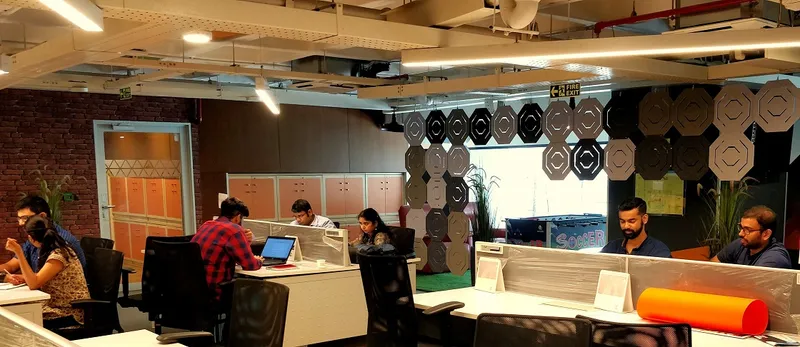
YS: Which statups have already graduated from your earlier cohorts?
NS: A total of 18 startups have graduated from the program so far.
QwikSpec (founded by Ajith Alexander with Roby Kurien) is an end-to-end jobsite management platform for the construction industry delivering time and cost efficiencies. It builds industry standards for quality and efficiency in India.
Constapark (founded by Chetan Chauhan and Mehul Pangtey) solves a complex parking problem by creating a city-level valet business. It targets restaurants and customers by optimising space for effective parking management.
Coworkyard (founded by Himanshu Bhatia) offers spaces for creative nerds, fun startups, young professionals and freelancers. It seamlessly meets multi-city workplace requirements for those who are frequent travellers, or are moving to a new city. There are over 90 spaces spread across seven cities in India.
CRE Matrix (founded by Abhishek Tiwari and Nitin Thakur) is a data analytics platform that provides information on accurate and trusted lease and sale transactions, rental and absorption projections, asset-level reports, micro-market analysis, and asset valuation for commercial real estate.
DesignSense (founded by Rakesh Rao and Arumuga Nainar) is a cloud-based collaboration platform that helps real estate companies get RERA ready. It connects project management, location and engineering data with various stakeholders and customers, enabling seamless flow of information between them.
Natura (founded by Ruchi Singh and Sitara Thomas) is an urban plantscaping company that helps create easy-to-maintain green spaces. It results in breathing environments with reduced energy and construction costs.
Props {AMC} (founded by Anand Moorthy and Natasha Moorthy) is a real estate insights and asset monitoring platform with a single, integrated tech platform. It is backed by robust data and information that enables seamless, transparent and compliant transactions for monitoring real estate properties and securities.
Snaptrude (founded by Altaf Ganihar) offers intelligence-enabled 3D rapid modelling for real estate that solves the design problem by automating digital design. It can transform a hand-drawn sketch into a 3D BIM model.
Soukwagon.com (founded by Jimmy Kuruvila) is a one-stop B2B procurement marketplace for food and beverage businesses. It helps the hotel, restaurant and catering (HORECA) industry in sourcing and procurement by listing products with negotiated B2B prices on their platform.
ZeeSense (founded by H K Katti, V R Venkatesh, and P Hariharan) offers a unified safety and security solution for gated communities. Its approach is based on connecting, automating and analysing data.
Pparke (founded by Shampa Ganguly and Pritam Ganguly) is a sensor-based smart parking solution that leverages IOT, data analytics and the consumer app to help manage urban mobility.
AirZaar (founded by Ravi Sahu and Ali Ahmadi) is an image processing and analytics company. It enhances visual intelligence by using drone technology to map land, and offers solutions for the mining and infrastructure industries.
AapKaPainter (founded by Anupam Singh) is a curated service delivery marketplace for painting and related services. It streamlines the entire painting process and standardises the experience of getting spaces painted, through technology integration.
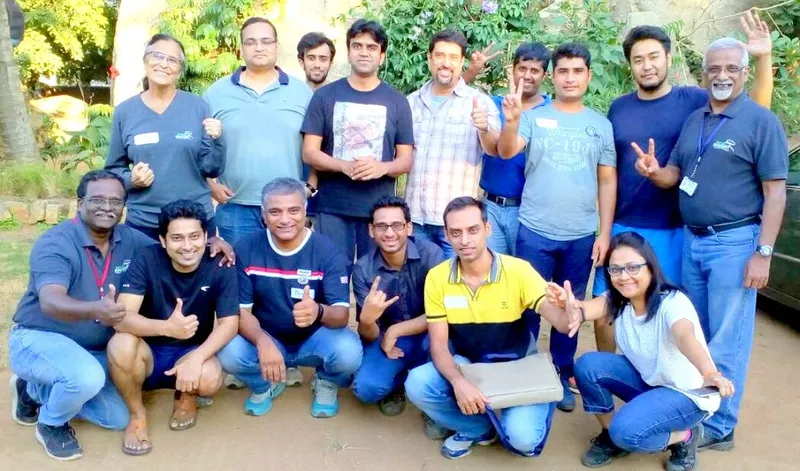
ECOSTP Technologies (founded by Tharun Kumar and Simar Kohli Das) has patent-pending technology for on-site sewage treatment in a reliable and eco-friendly manner. The technology works independent from power supply and daily surveillance, and can be tailored to offer the best economical and ecological option.
QuickQuotes (founded by Premshankarr A) offers transparency and automation in the material procurement process by leveraging Big Data and AI. Targeting a growing database of vendors and services, the platform offers best industry practices, dashboards, and critical alerts.
Synconext (founded by Vishal Jain) offers sensors and wireless networking for a scalable infrastructure. Building on IoT, the distributed data communications network provides rich data that can help achieve building efficiencies and economies.
WEGoT (founded by Vijay Krishna, Mohamed Mohideen, Sundeep Donthamshetty, and Abilash Haridass) offers sensor-based water usage analytics. The IoT-based water management system tracks user consumption on a real-time basis and provides insights to regulate the usage of water. Since the first pilot in 2014, its VenAqua solution has been used in more than 2,000 homes and has saved more than 30 million litres of water within the first two years of existence.
Woodzon (founded by Binesh Viswanath) is a community marketplace for people from the woodworking industry. It helps them list, buy and discover unique products, services, technology, solutions, and designs from around the world. There are more than a thousand categories and a lakh products, for needs such as hand tools for carpentry, decorative finishes for interiors, and a complete woodworking production line.
YS: What is the background of the managers of your accelerator?
NS: Brigade REAP is a six-member team with diverse experience and skillsets. The team is headed by John Kuruvilla, Chief Mentor at Brigade REAP. He has been a serial entrepreneur himself, and was the Managing Director of GenNext Ventures, a Reliance Industries Limited sponsored venture fund.
Apul Nahata is the Mentor-in-Residence. He was instrumental in helping set up and run the GenNext Innovation Hub, which has already seen three batches graduate successfully. This accounts for a total of over 30 companies.
YS: What would you say are the top three opportunities for Indian entrepreneurs?
NS: The startup ecosystem in India is gaining momentum with extended support from the government and industry at large. Further, as far as real estate is concerned, there are “real” problems for the entrepreneurs to explore.
1. PropTech
As per a McKinsey study that came out in 2016, the key trends that will shape the future of the real estate industry are rapid digital mapping, information modelling, digital collaboration, IoT/analytics, and future-proof design. As per BCG, relevant technologies here include AR/VR, additive manufacturing, robotics, and cyber security, in layers ranging from physical infrastructure to digital interfaces.
The intervention of technology in real estate is very limited at the moment. There are tremendous opportunities in the construction business that can be exploited to its maximum advantage. The industry can greatly leverage technology at all stages of construction, right from ideation and design to delivery. This includes use of drones for land survey and mapping, and mobile-based construction site management.
2. Energy-saving solutions
Despite abundance of solar energy in most parts of India, the cost of solar panels is still not conductive enough to use for harnessing energy. This is a great area to bring academic and business model innovation to provide low-cost energy solutions for the growing needs of developing nations.
3. Waste management
Waste management in India is negligible, resulting in polluted rivers and lakes by dumping of wastes in them. Thus companies focusing on waste management, such as recycling or management of commercial and residential waste, have great opportunities in the near future.
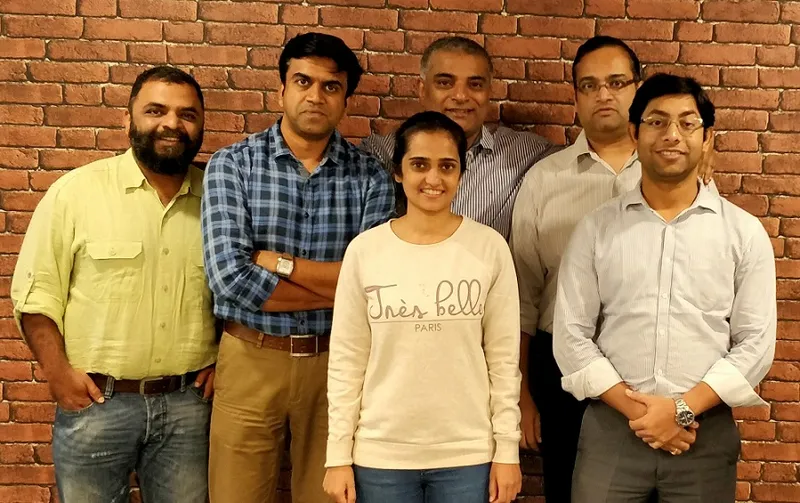
YS: What are the key challenges faced by startups in India, and how can you help bridge the gap?
NS: As a startup, one faces various challenges on the path to success. They include product-market fit, market access, hiring of the right team members, PoC opportunity, and investor access. Brigade REAP helps startups overcome these challenges at every stage of the entrepreneurial journey.
YS: Who are some of your institutional partners, and what kinds of agreements are in place?
NS: We have forged strong partnerships with Cisco, Intel and Microsoft for technology mentorship for our startups, and with CBRE and Nasscom for go-to-market (GtM). These partnerships have proven to be extremely useful to the startups in the cohort for capability enhancement and PoC. The partners are also part of our jury for selecting startups in the cohort.
YS: What support and services do startups receive in your accelerator?
NS: Brigade REAP engages with the startups in six critical areas:
- Product: help draw out a product roadmap that can solve relevant problems
- Technology: help develop a technology that is relevant to global business trends
- Business model: validate and modify business models based on market insights
- People: help in hiring the right team for the startups
- GtM: leverage well-established channels and partners and chose the path of least resistance or low cost but high impact
- Scale: constant monitoring and focus on key metrics.
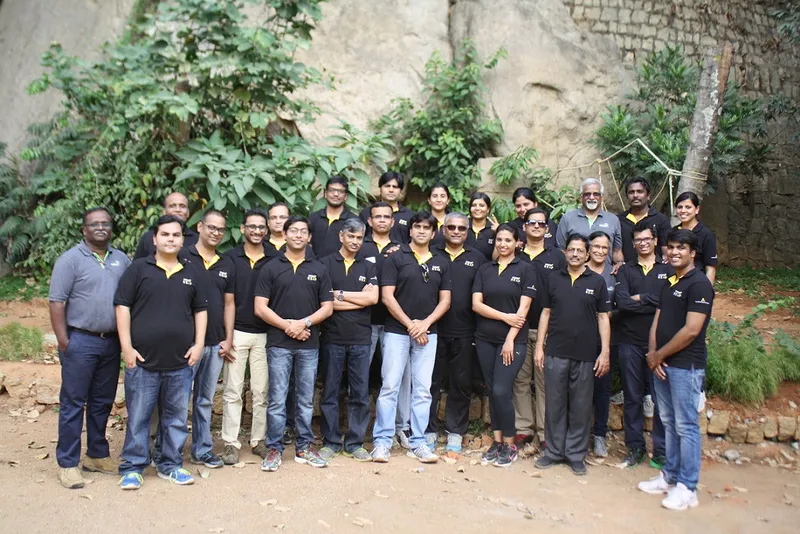
YS: What percentage of equity do you charge your startups?
NS: We take equity between two and five percent in the startup for the value we provide. The percentage will be based on the investment and revenue run rate that a company has at the time of applying to the programme.
YS: What kinds of intellectual property (IP) are being created by your startups?
NS: One of the key things we advise startups is to build strong IPs, not just for defensibility but also to put their stake in ground in terms of innovation (process, design or technology). Not only do we have sessions taken by experts who educate the startups on different kinds of IP, but also how to go about doing it right. IPs that showcase core technical innovation, design and process patents are now being explicitly explored and filed by the REAP startups.
YS: How would you differentiate your accelerator from the other accelerators in the field?
NS: Brigade REAP is sector-focused on real estate. In fact, we are Asia’s first real estate-focused startup accelerator programme, and were recently ranked among the top-five real estate accelerators in the world by Archipreneur.
At REAP, we are deeply entrenched with the startups and accompany them for customer pitches, help them in their hiring, and sort out investor/mentor issues if any. Our focus has always been to help startups unlock value. What most startups want from an accelerator is an increase in the number of customers, increase in revenues, additional funding, and a pilot project with a developer.
Access to other developers is not easy. Taking a leap of faith on a startup and giving them a pilot project also requires time and energy from the developer’s side. However, with lots of effort using personal networks, REAP has been able to help startups achieve these goals. While there are no written guarantees, our success ratio has been quite high in this regard. See some of the startup testimonials here.
YS: What would you define as success for your accelerator?
NS: Only ten percent of early-stage startups have achieved success in India. For us at the accelerator, success for a startup is defined by the increase in revenue and the customer base. Startups from the past three cohorts have seen a 78-percent average increase in revenue.
In addition, 44 percent of the startups have raised funds from angel investors and large VC funds. Brigade REAP too, through its associates, has invested in some of these startups. Our numbers are far higher than the industry average.
YS: How would you compare and contrast India’s accelerators with those of other countries like the US and China?
NS: The startup world in India has started to emerge only in the recent years, whereas the US or China started their journey way before. However, considering the number of years the accelerators have been in play, the accelerators in India are doing a great job by identifying and nurturing promising entrepreneurs and startups. That being said, we still have a lot of potential to build more accelerators and help bridge the gap between startups and the industry.
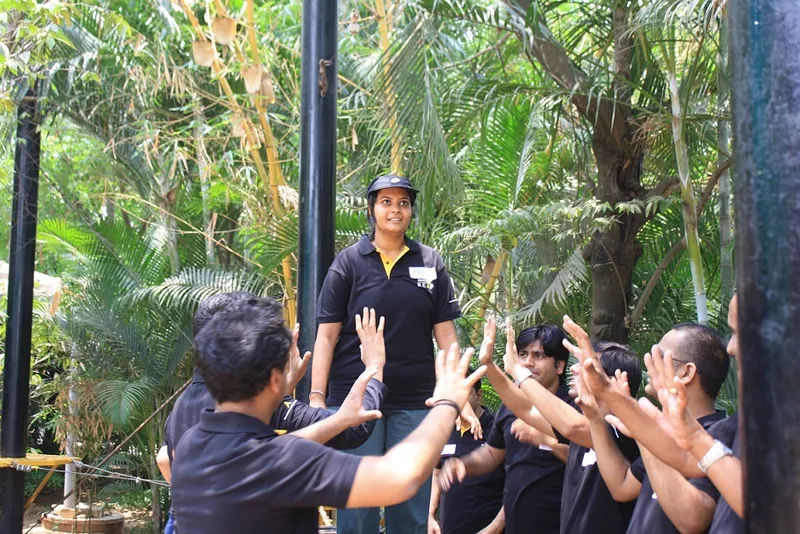
YS: What are your plans for the coming three-to-five years, with respect to new startups?
NS: With the advent of the Real Estate Regulatory Act (RERA), it is imperative for developers to deliver a quality product on time. While the new act is welcome, developers will need to be very careful about compliance and consumer activism.
Hence, Brigade REAP is focused on working with startups that can help developers increase revenue, optimise costs, save time, and increase efficiency.
YS: What are the challenges you face, and how can they be overcome?
NS: The biggest challenge in the real estate vertical is the adoption of technology by the industry itself. With the second generation of managers coming in to the business and with their exposure to technology, the pace of adoption of technology is accelerating.
The other challenge is implementing and acceptance by the teams within the real estate companies down the line to work with new ideas and fresh players. It needs a lot of intervention from top management to increase acceptance.
There is also the service issue faced by startups to tackle large volumes of business at one go that needs to be addressed. But this is what scaling up is all about.
YS: How can better partnerships be forged between accelerators, industry and universities?
NS: For the startup ecosystem to succeed, we need to have a strong partnership between accelerators, industry and universities. Universities can be a strong feeder of innovations that are incubated in research labs.
With help from accelerators and industry, such innovations can be helped to bridge the gap and get the product market-ready. We believe that accelerators too must freely collaborate to create a vibrant ecosystem that shares resources for helping startups in our country.
YS: What are your recommendations for Indian policymakers to make business easier for accelerators, investors, researchers, and startups in India?
NS: The Indian startup ecosystem in India is growing and is ranked the third-largest in the world. With the increase in number of startups, it has become important to have a well-defined startup policy in place for the nation at large.
Despite the startup policy implemented by the government, startups still face huge troubles with respect to lengthy incorporation process, legal litigation in funding, exit processes, and more. It would be advisable to deregulate the policies to an extent where the startup ecosystem can perform business with greater ease.
In fact, if the government can put in place a policy where startups can participate in tenders in a transparent manner on the strength of their application and limited traction, we believe the startup ecosystem will get a fillip.
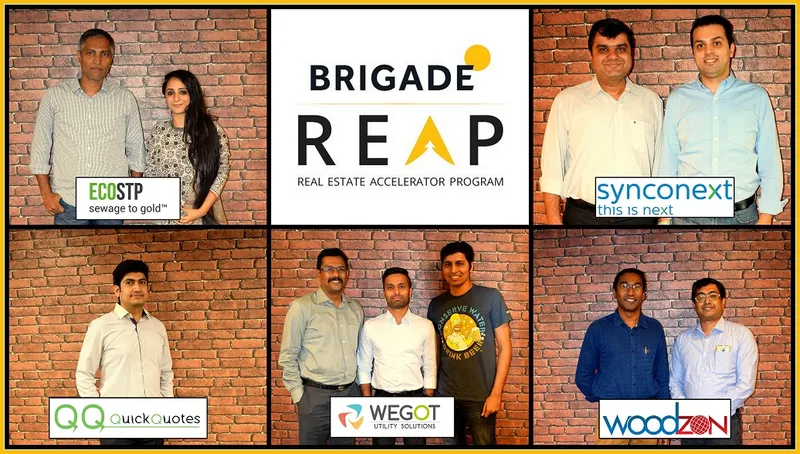
YS: What are your recommendations or words of inspiration to the startups and entrepreneurs in our audience?
NS: At REAP, one of the most important mantra we preach is to create a ‘must-have’ product over a ‘good-to-have’ one. As Russell Simmons, Founder of Def Jam, rightly states, “You just have to pay attention to what people need and what has not been done.” Creating a product that meets needs will be the first step to success.
The other four mantras we preach at REAP are: startups should focus on customers who pay for the product and not just any customers, they should grow a business that is scaling at least 15-20 percent month on month, they should build powerful IPs, and they should unlock value rather than chasing them.







